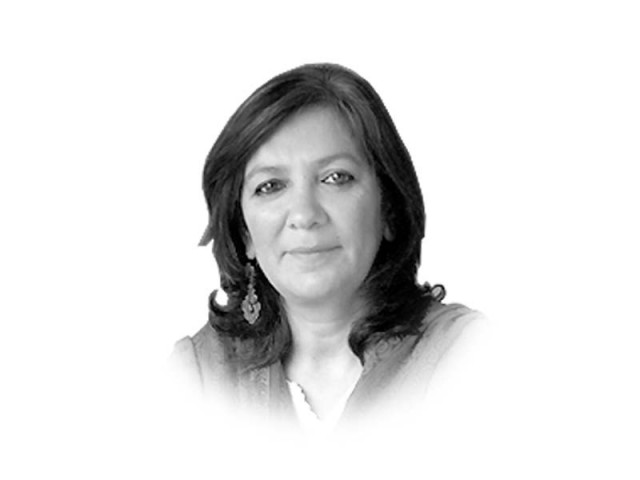On the road in western Uttar Pradesh
The churning in Indian politics is so strong these days that value, reason and emotion are all mixed up.

The writer is an independent journalist based in New Delhi, India
The villages en route are equally populated with Hindu Jats and Muslims, approximately 25 per cent each, but it is when you add the backward caste as well as the Dalit populations that the scales tilt in favour of the “Hindu majority”. In normal circumstances, it would be both silly and superficial to put religion on top of caste, at least as far as voter patterns are concerned. The truth is, once caste kicks in, as it has much more prominently since 1992, the caste lens measures all politics and all communities, whether Hindu, Muslim or Christian.
The problem is that these are extraordinary times. The BJP’s prime ministerial candidate, Narendra Modi, and other party leaders, in the last few days of the election campaign before the first votes were cast on April 7 (the election is spread out over seven phases, while the counting will take place on May 16) have upped the rhetoric, although they continue to speak in different voices. Modi’s voice has become a radio staple, urging voters to rise above caste and community and ending with Bharat Maata ki jai, an exhortatory slogan that nobody can argue with.
And then there is Amit Shah, Modi’s best friend and confidante from Gujarat, who promises to create havoc in Delhi if Modi comes to power by speaking out of turn and not allowing anyone in the party to correct him. Not only is Shah known to reflect Modi’s state of being, he definitely goes several steps further by cementing his ideological fervour.
In Muzaffarnagar last week, Shah told an audience that it would be natural for the party to take “revenge”. The BJP spokesperson, Nirmala Sitharaman, remonstrated with secular critics, insisting that Shah was speaking in very general terms and not referring specifically to the Muzaffarnagar riots.
But the damage had been done, deliberately or otherwise, by Shah. The counter-reaction is also already taking place. By the time polls are held here on April 17, western Uttar Pradesh seems properly polarised along its basest instinct, that of religion. At least here, the sheen is being taken off caste-based politics.
The result is that Muslim clerics and leaders with influence are coming out and exhorting their flock to vote strategically, so as to strengthen the hand of the candidate who has the best chance of defeating the BJP candidate in that constituency.
In Delhi, the Imam of the Jama Masjid has come out in favour of the Congress party. In Varanasi, it is said that Mukhtar Ansari, the gangster-turned-politician who is fighting Modi from Agra jail –– where he has been ensconced for several years on a charge of murdering a fellow politician –– may stand down in favour of the strongest candidate, either Ajay Rai of the Congress or Arvind Kejriwal of the Aam Aadmi Party, so as to give Modi a real fight.
And in western Uttar Pradesh, Maulana Arshad Madani, leader of the Jamiat Ulema-e-Hind and the man who has significant influence over Deoband, the second-largest Islamic seminary after Al Azhar in Cairo, told me that the ‘Muslim vote’ must come together so as to continue to keep India both, diverse and secular.
“Agar Musalman ek jut hokar nahin vote karte, to bikhar jayenge,” Madani said.
His fears are not unfounded. In Meerut, for example, the Muslim vote is already split between the Congress candidate, the film actor Naghma, the backward caste Samajwadi Party candidate, Shaikh Manzoor, and the Bahujan Samaj Party candidate, Sheikh Akhlaque. The BJP candidate is, meanwhile, riding high because of the Modi factor.
Will the gamble pay off or is it both wrong and unfair to put the burden of responsibility of defeating Modi on the shoulders of the Indian Muslim?
Certainly, the churning in Indian politics is so strong these days that value, reason and emotion are all mixed up. The froth will settle –– but it will take some time.
Published in The Express Tribune, April 9th, 2014.
Like Opinion & Editorial on Facebook, follow @ETOpEd on Twitter to receive all updates on all our daily pieces.
















COMMENTS
Comments are moderated and generally will be posted if they are on-topic and not abusive.
For more information, please see our Comments FAQ